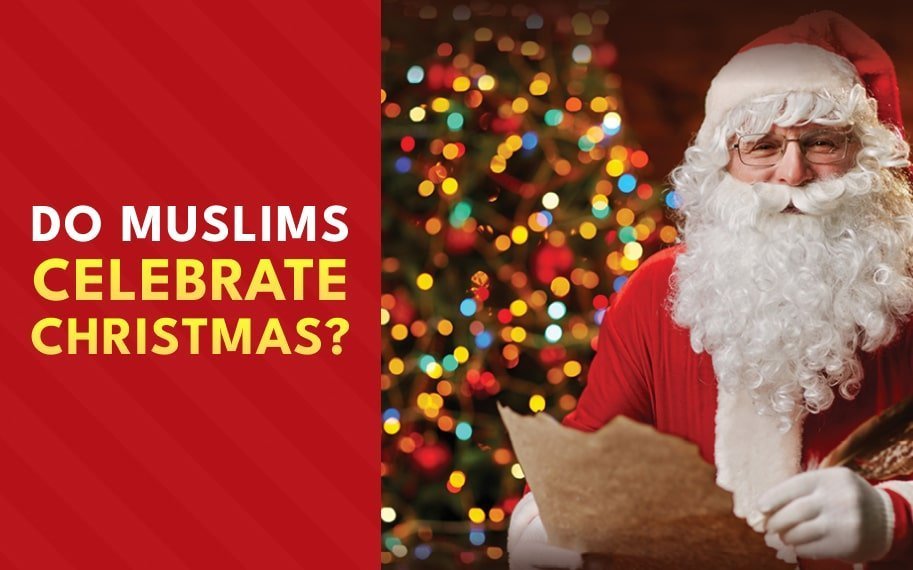
The holiday season often brings forth a myriad of traditions and celebrations, prominently among them being Christmas. However, in the context of Islam, the observance of Christmas varies among Muslims worldwide. In this blog, we delve into Muslims’ nuanced perspectives and practices regarding Christmas.
Table of Contents
Understanding Islamic Perspectives
- Religious Significance: Christmas is not a religious festival in Islam as it is in Christianity. Muslims hold beliefs specific to their faith and typically do not observe Christmas as a religious occasion.
- Respect and Tolerance: Islam emphasizes respect for diverse beliefs and encourages tolerance. While not celebrating Christmas religiously, many Muslims acknowledge and respect the significance of the holiday for their Christian friends and neighbors.
Reasons for Non-Celebration
- Theological Differences: Islamic beliefs diverge from the theological aspects of Christmas, such as the birth of Jesus as the Son of God, which doesn’t align with Islamic theology.
- Adherence to Islamic Traditions: Some Muslims refrain from participating in Christmas celebrations due to their commitment to Islamic principles, avoiding practices that may compromise their religious beliefs.
Practices and Cultural Observations
- Cultural Engagement: In regions with diverse populations, some Muslims may partake in certain cultural aspects of Christmas, such as enjoying festive decorations, exchanging greetings, or attending social gatherings with friends and colleagues.
- Personal Choices: Individual practices among Muslims regarding Christmas can vary widely. Some may engage in gift-giving or charitable activities during the holiday season without observing the religious aspects of Christmas.
Importance of Mutual Understanding
- Promoting Respect: Muslims often extend greetings of peace and goodwill to their Christian friends during the Christmas season, reflecting the Islamic values of kindness and compassion.
- Interfaith Dialogue: Christmas allows Muslims to engage in respectful conversations about their beliefs and practices, fostering greater understanding and harmony among diverse communities.
Conclusion
For many Muslims, the observance of Christmas varies based on personal beliefs, cultural influences, and adherence to Islamic teachings. While Islam does not prescribe the celebration of Christmas as a religious holiday, it encourages Muslims to respect and understand the traditions of others. Embracing diversity, promoting respect, and engaging in meaningful dialogue can contribute to a world where different faiths coexist harmoniously, enriching the tapestry of humanity.
FAQs
1. Do Muslims celebrate Christmas as a religious holiday?
No, Christmas is not a religious holiday in Islam. Muslims primarily celebrate Islamic festivals and do not observe Christmas as a religious occasion.
2. Why don’t Muslims celebrate Christmas?
Muslims have theological differences regarding the religious significance of Christmas, such as beliefs about the divinity of Jesus, which differ from Islamic teachings.
3. Do all Muslims avoid Christmas celebrations?
Practices vary among Muslims. Some avoid participating in religious aspects of Christmas due to theological differences, while others may engage in cultural or social aspects of the holiday.
4. Is it disrespectful for Muslims to celebrate Christmas?
It’s not inherently disrespectful, but some Muslims may refrain from participating in religious aspects of Christmas due to their adherence to Islamic teachings.
5. Can Muslims exchange gifts or greet them during Christmas?
Yes, exchanging gifts or offering greetings of peace and goodwill during the Christmas season is common among Muslims as a gesture of respect and kindness toward their Christian friends and neighbors.
6. Are there cultural or social aspects of Christmas that Muslims might participate in?
In multicultural societies, some Muslims may enjoy festive decorations, attend community events, or join social gatherings during Christmas without observing its religious significance.
7. Is it permissible for Muslims to decorate or display Christmas symbols?
Opinions among Islamic scholars vary. Some Muslims may choose to avoid displaying Christmas symbols due to religious considerations, while others might not see it as problematic.
8. How do Muslims navigate Christmas in multicultural societies?
Muslims often balance their religious beliefs with respect for diverse traditions. They may engage in acts of kindness, and socialize with friends or colleagues while being mindful of their religious practices.
9. Do Islamic teachings encourage or discourage participation in Christmas festivities?
Islamic teachings encourage respect, understanding, and kindness toward others’ beliefs while emphasizing adherence to Islamic principles and practices.
10. How can Muslims and non-Muslims promote mutual understanding during Christmas?
Engaging in open and respectful dialogue, exchanging cultural knowledge, and demonstrating mutual respect for traditions can foster harmony and understanding between different communities during the holiday season.
Read Also
Story of Ashab e Kahf according to the Quran
10 Manners & Etiquettes of Holy Quran Recitation
Importance & Benefits of 4 Qul in Islam
Laylat Ul Qadr (Night of Power) – Meaning & Significance
How to Be a Successful Husband – 20 Tips
How To Be A Good Wife – 21 Effective Tips
The 5 Pillars of Islam – All You Need To Know

